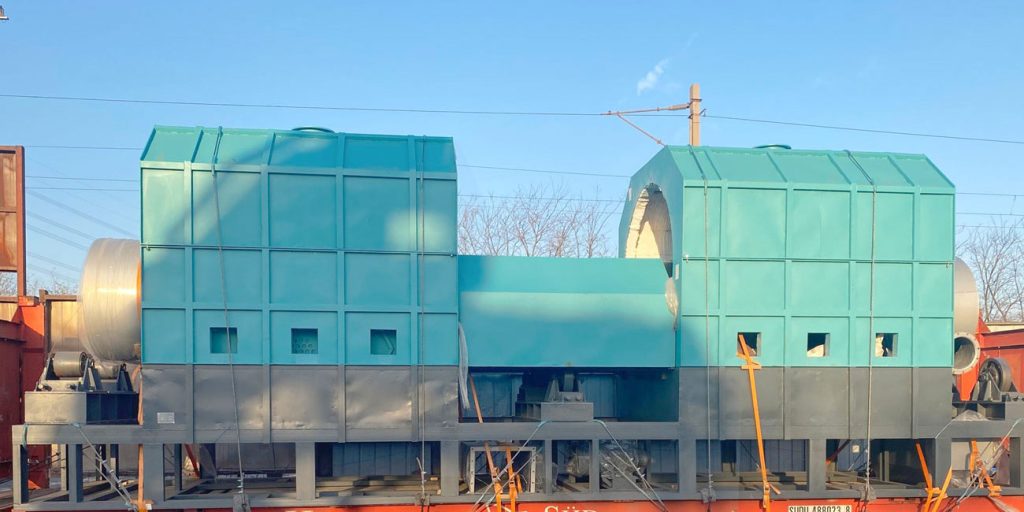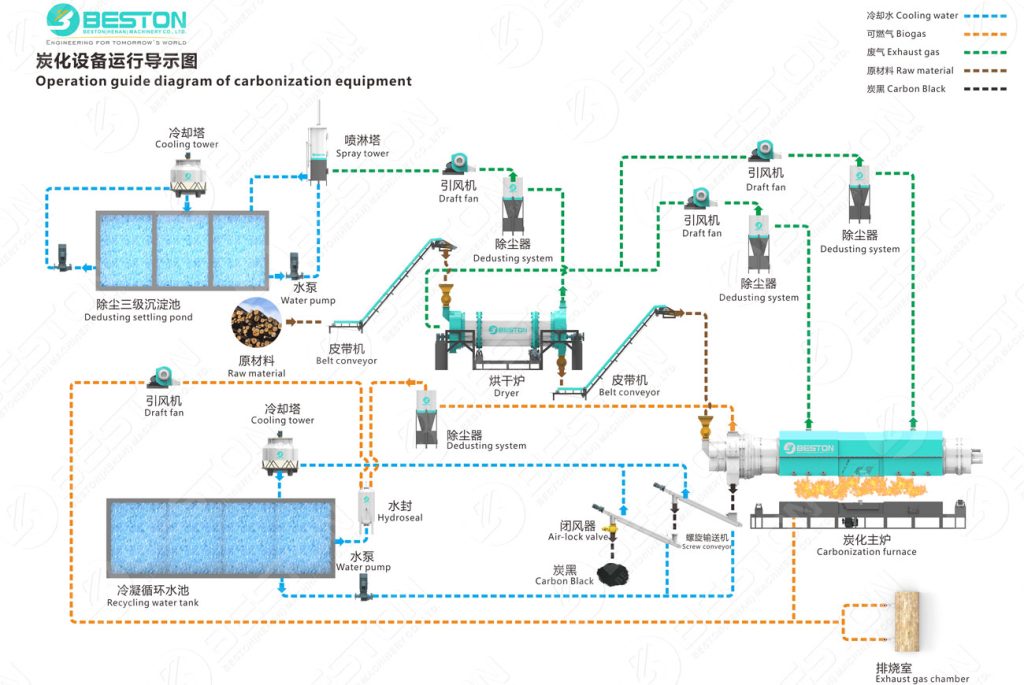Biochar production equipment represents a promising solution to address environmental issues while harnessing the potential of organic waste. This innovative technology transforms various raw materials into biochar, a highly porous charcoal-like substance that can enrich soil, capture carbon, and provide sustainable energy solutions.

The Raw Materials: Nature’s Bounty
Agricultural Residues
The journey of biochar production equipment begins with agricultural residues such as crop stalks, straw, and husks. These materials, often discarded or burned, can be repurposed through pyrolysis, a process that converts biomass into biochar. By embracing agricultural residues as a primary raw material, biochar production equipment not only reduces waste but also creates a valuable resource for soil improvement.
Forestry Byproducts
Wood chips, sawdust, and bark, which are typically considered forestry byproducts, are excellent candidates for biochar production. The equipment optimally utilizes these materials, turning them into biochar with immense potential for carbon sequestration. As forests are managed sustainably, biochar production from forestry byproducts supports ecosystem health.
Municipal Green Waste
Urban centers generate substantial green waste through landscaping and park maintenance. Biochar production equipment can effectively process this green waste, diverting it from landfills while producing a valuable soil enhancer. By recycling municipal green waste, communities can reduce landfill pressure and enhance local soil quality.
Animal Manure
Livestock farming produces significant quantities of manure, which can be problematic if not managed properly. Biochar production equipment can convert animal manure into biochar, addressing environmental concerns associated with runoff and odors. This biochar can be applied to agricultural fields, locking in nutrients and improving soil structure.
The Pyrolysis Process: Transforming Raw Materials into Biochar
Biomass carbonization machine employs pyrolysis, a thermochemical process that occurs in the absence of oxygen. During pyrolysis, the raw materials are subjected to high temperatures, causing them to break down into biochar, bio-oil, and syngas. The biochar is the solid residue that remains after the process, and it is the key product of interest.

Environmental Benefits of Biochar Production
Carbon Sequestration
Biochar has a remarkable ability to capture and store carbon for centuries. When integrated into soil, it helps mitigate climate change by locking in carbon dioxide that would otherwise be released into the atmosphere.
Soil Enhancement
Biochar improves soil structure, water retention, and nutrient retention. It acts as a sponge, enhancing the soil’s fertility and reducing the need for chemical fertilizers.
Waste Reduction
By converting organic waste into biochar, this charcoal maker machine significantly reduces landfill contributions and helps address waste management challenges.
Biochar production equipment represents an innovative and sustainable approach to tackling environmental challenges while maximizing the potential of various raw materials. By harnessing agricultural residues, forestry byproducts, municipal green waste, and animal manure, this technology transforms waste into a valuable resource. The resulting biochar not only improves soil quality and carbon sequestration but also contributes to a greener, more sustainable future. Join Beston Group for sustainable development.